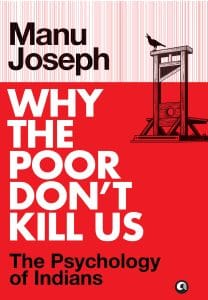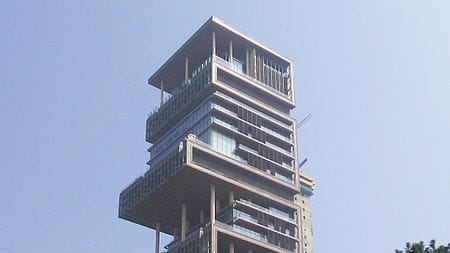A benign fraud in art and journalism is contrast photography, the kind where the contrast is not a property of light, but of India. Burqa-clad women walking beside girls in small skirts; the sari-draped scientists of the space programme; a Bharata Natyam dancer holding a laptop. A meaningful question that we can ask the creators of such frames is: ‘So?’ There are no contradictions in these images. Some contrast photography, though, conveys vulgarity, and it may have a point. For instance, a naked urchin at the giant glass window of an upscale restaurant; the homeless beneath a builder’s hoarding. India is filled with this sort of vulgarity. But it is not always bad. In some forms of vulgarity, there is also hope.
This is what intellectuals didn’t get about Mukesh Ambani (and American intellectuals did not understand about Donald Trump). People, today, aspire to money and not class. They don’t mind seeing the money of other people. When Ambani, the richest Indian, built one of the most expensive homes in the world, a twenty-seven-storey-high modern palace in the heart of Mumbai, the intellectuals said it was self-destructive for him to mock the average Indian in this way. But the average Indian did not feel mocked; they saw hope. It was a shrine to a commodity that they thought they, too, can amass. (It was the old-money millionaires of Mumbai who resented Ambani—for diminishing their sea views.)
As we will see, there is a sort of vulgarity that is dangerous in a poor country, but there is an aspirational quality to some kinds of vulgarity.
Also read: Economics must listen to human beings—not teach them to think like rational experts
The false hope of higher education
The poor, who wish to make something of the lives of their children, are sucked into the powerful idea of education. Those who aspire for high-level jobs only realize much later that material success, except for geniuses in sports, is largely about social class. Still, their co-option in the form of education is valuable to them. Their lives do become somewhat better because the modern economic system is rigged to favour the educated. As a result, the poor play a game where the elite hold all the cards. They feel that if they do a set of things, if they toe the line, they will be offered a chance at a better life. This is not entirely untrue. Of course, the poor cannot unseat the rich in some lucrative fields like heart surgery, corporate law, investment banking, or the whole start-up culture where social class is crucial. But the rich do keep vacating many other spheres as they move on to newer professions or intellectual pursuits, or romanticized forms of unemployment. The educated among the poor then fill up the spaces the rich have vacated.
 This excerpt from Manu Joseph’s ‘Why the Poor Don’t Kill Us’ has been published with permission from Rupa Publications India.
This excerpt from Manu Joseph’s ‘Why the Poor Don’t Kill Us’ has been published with permission from Rupa Publications India.






